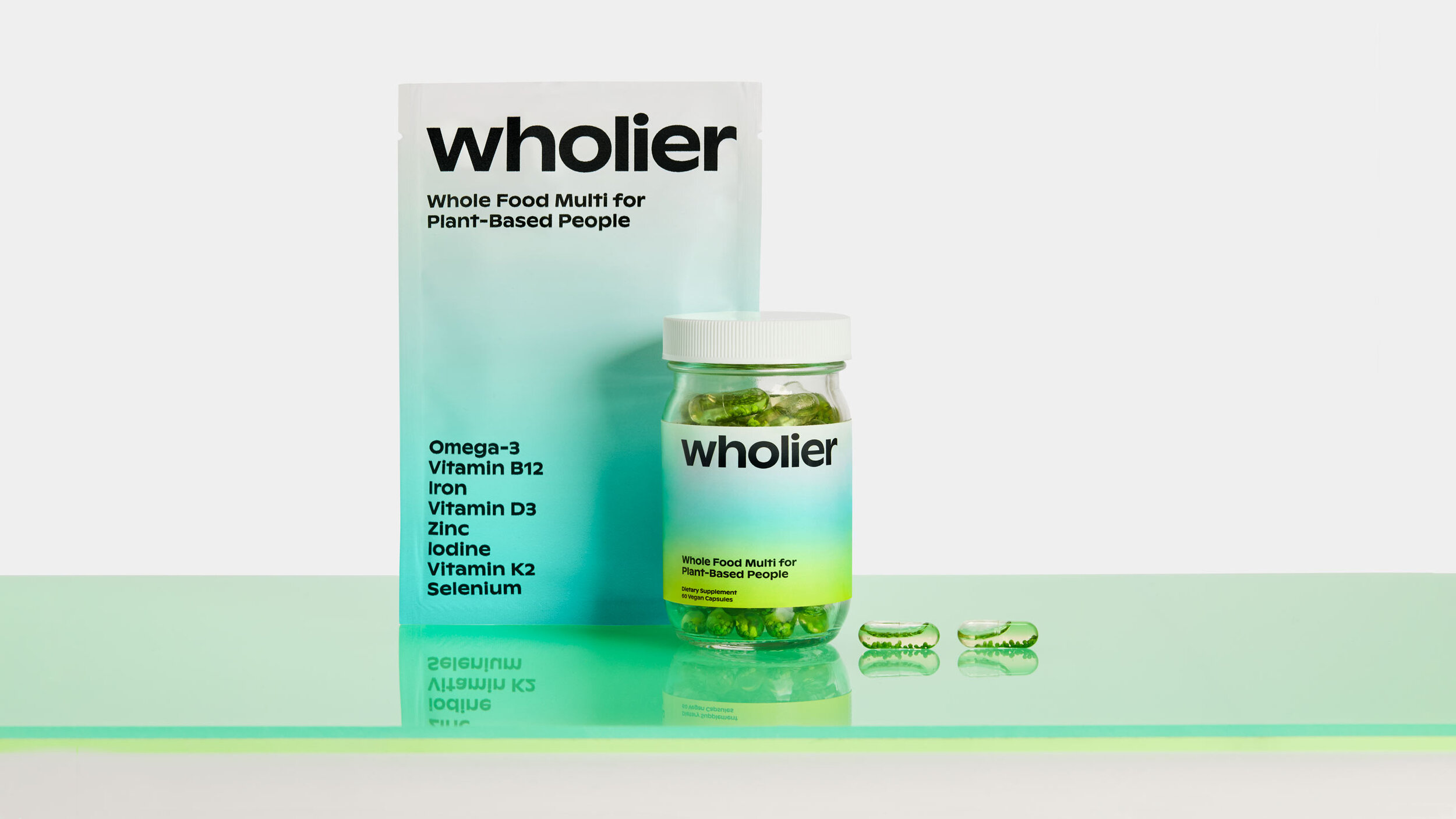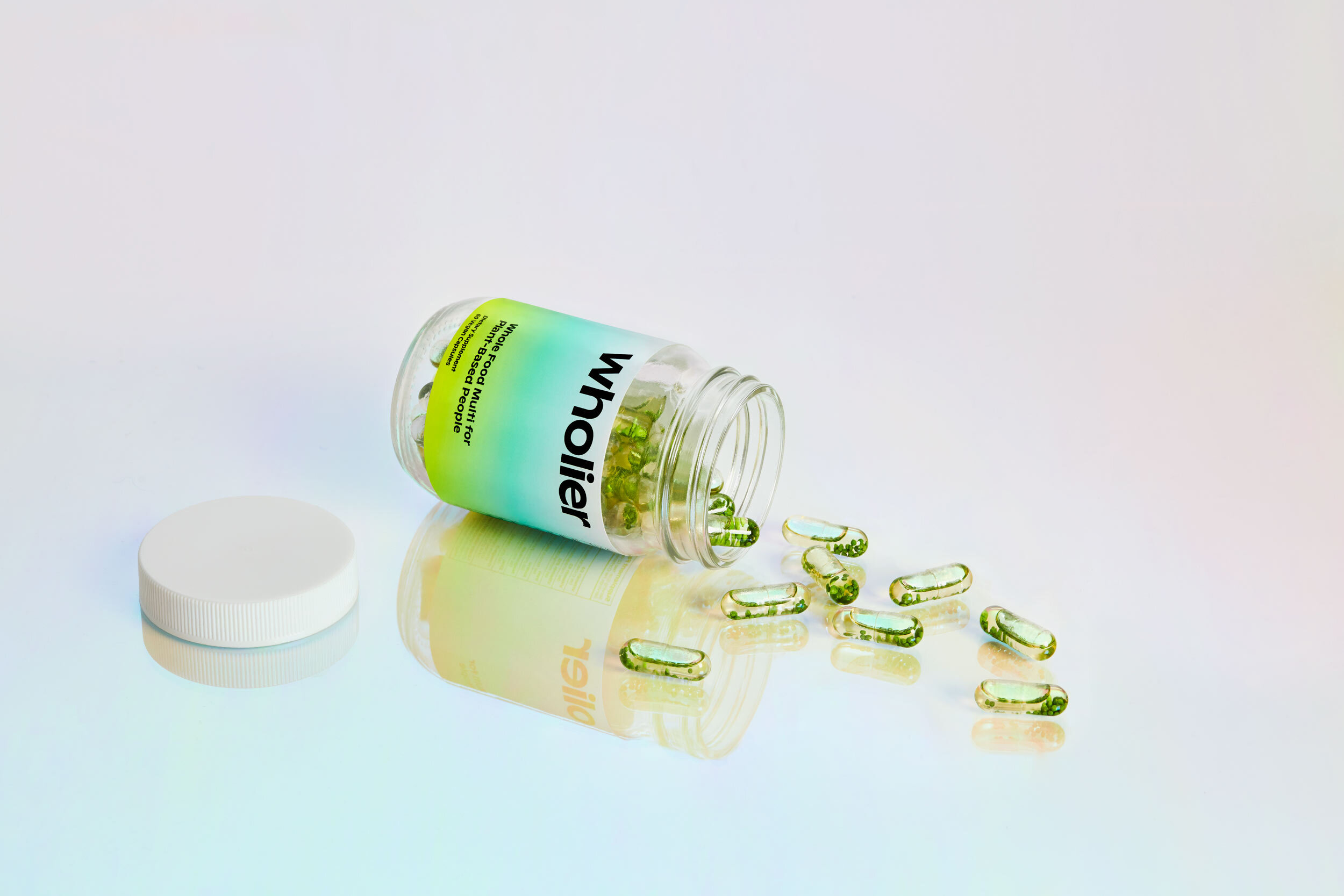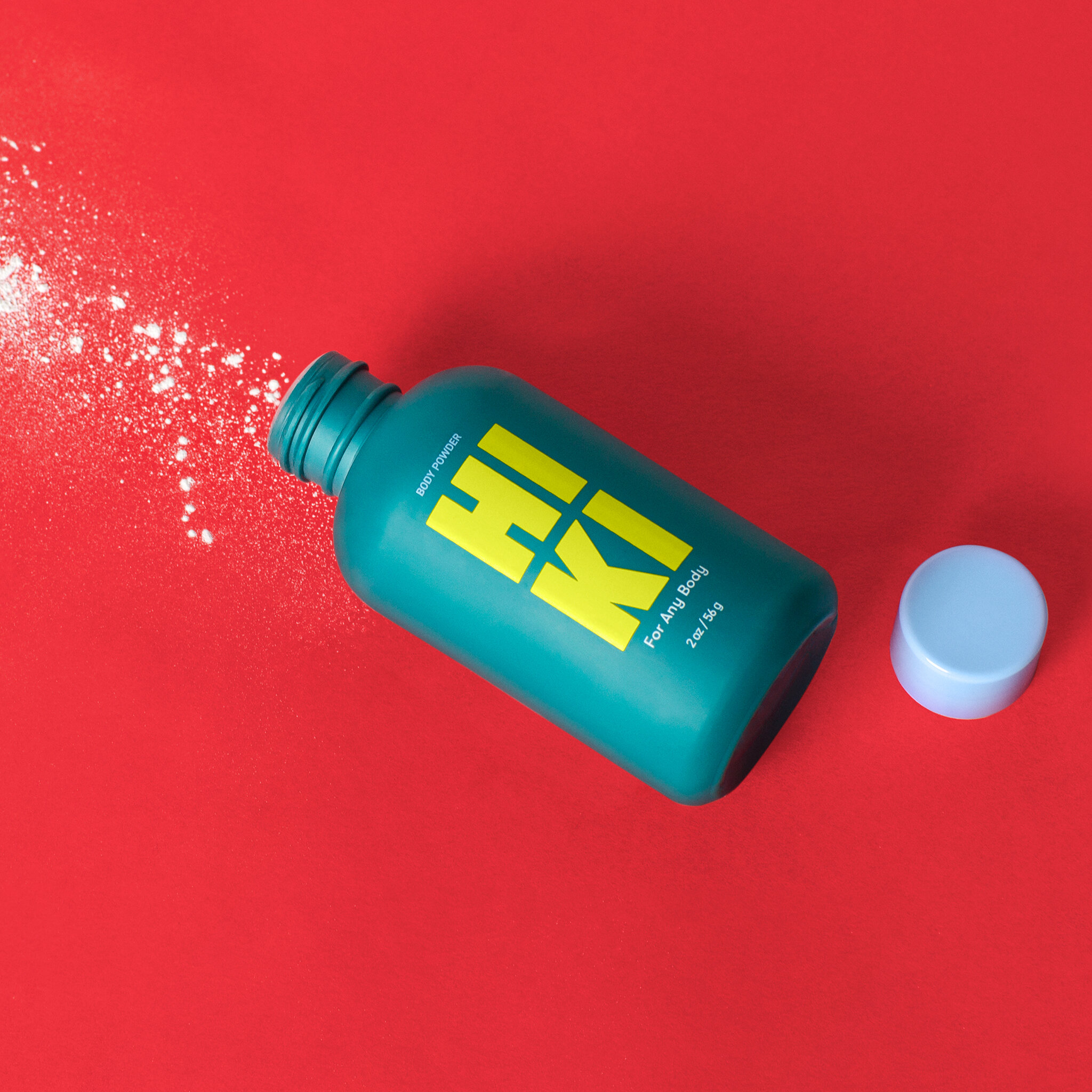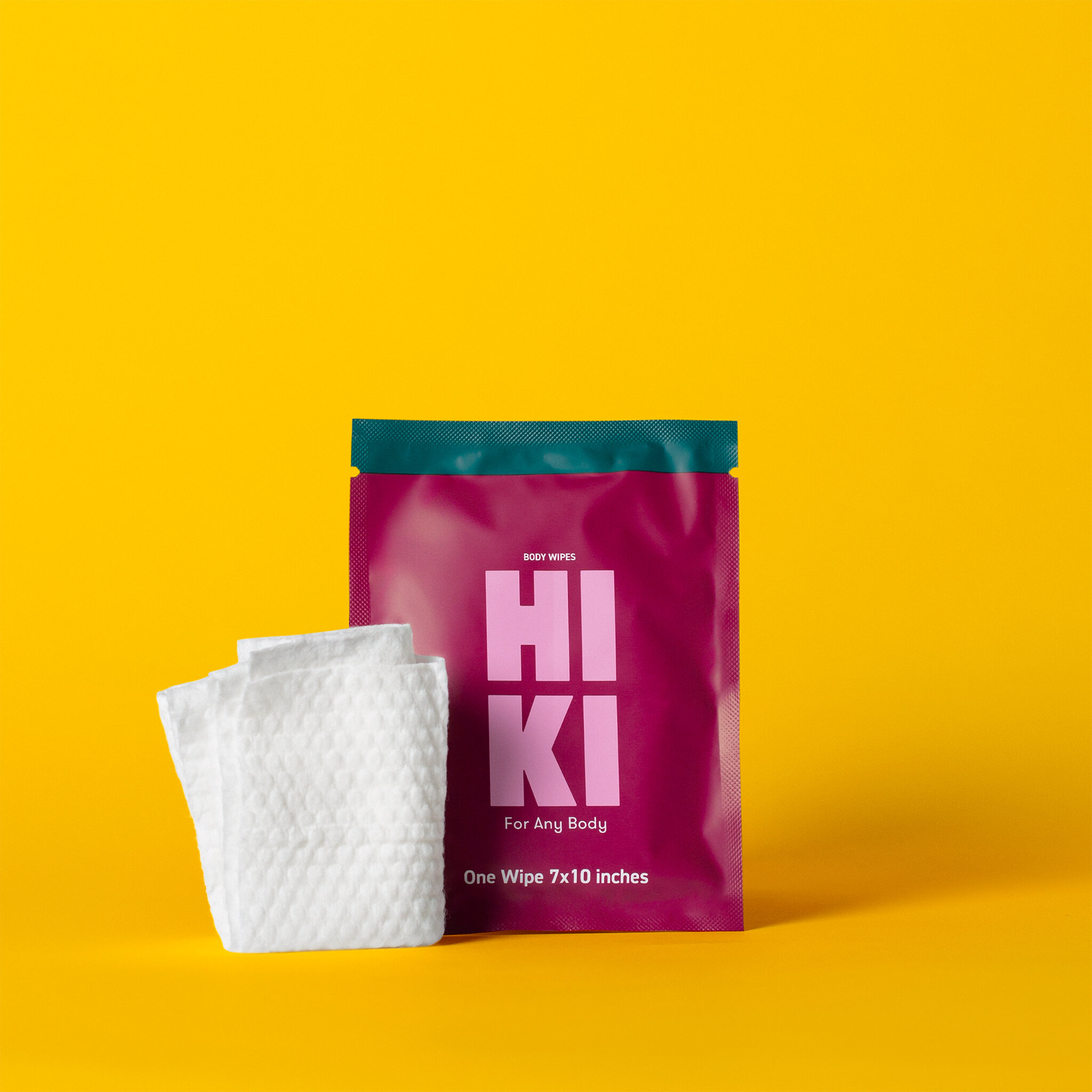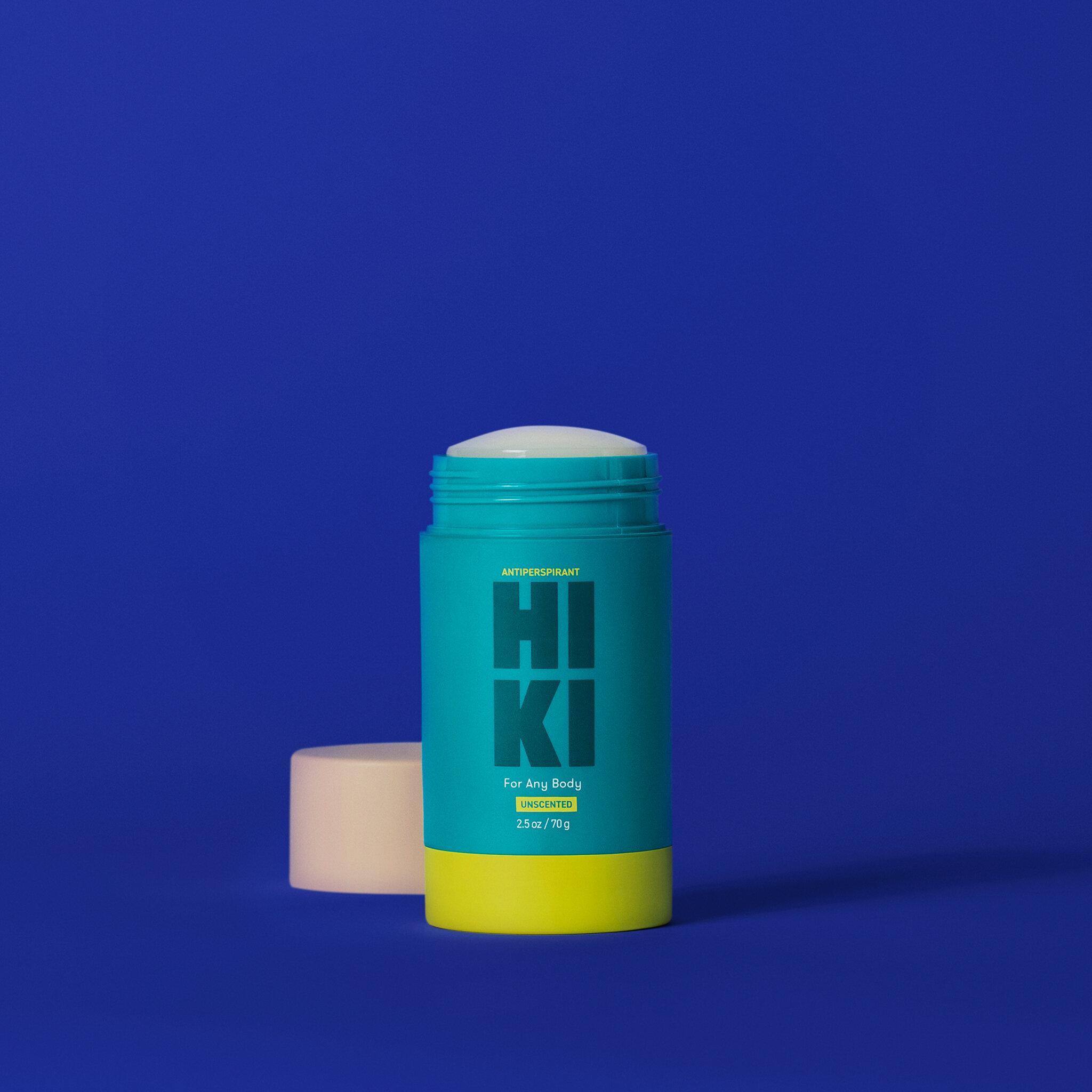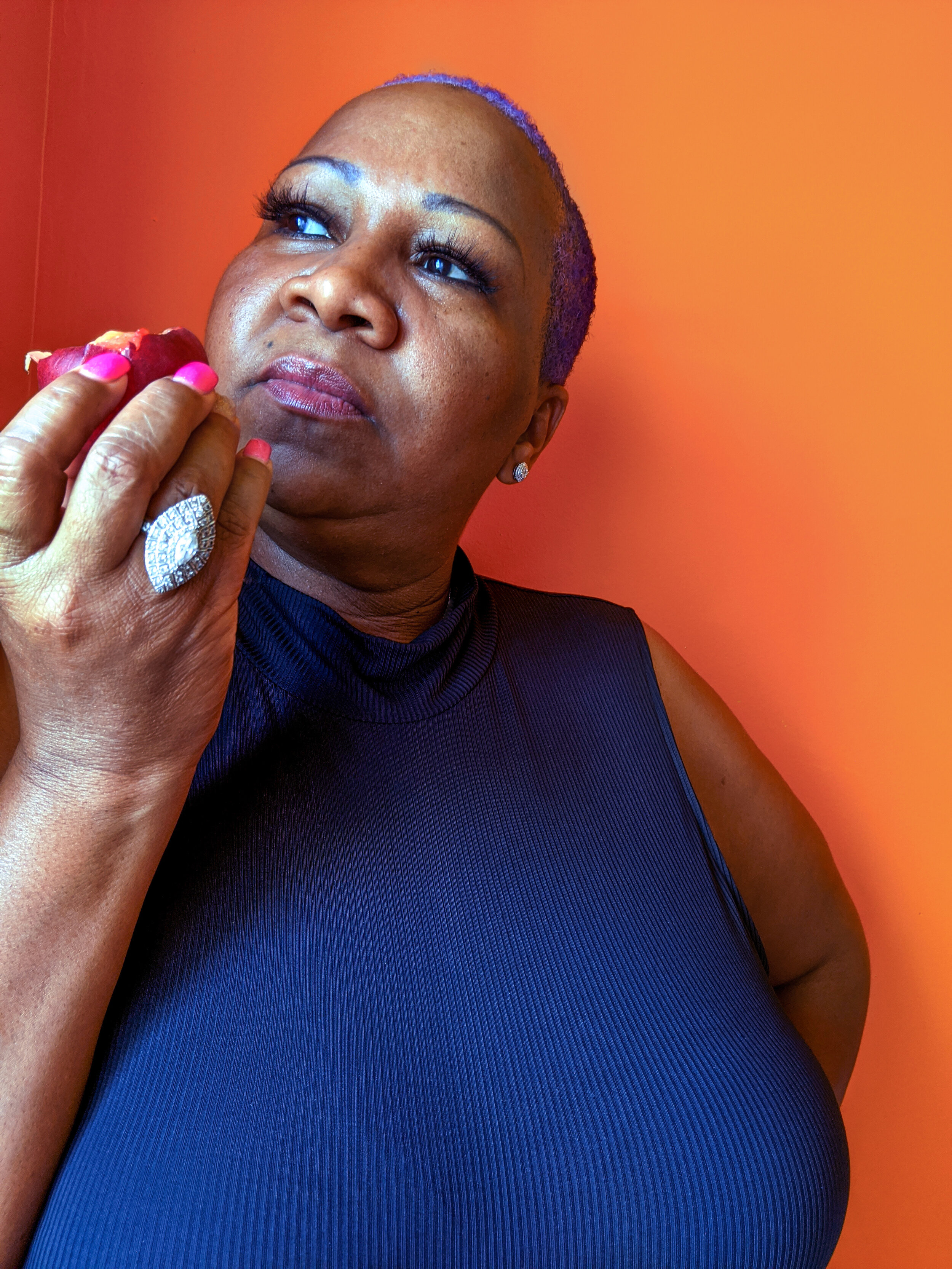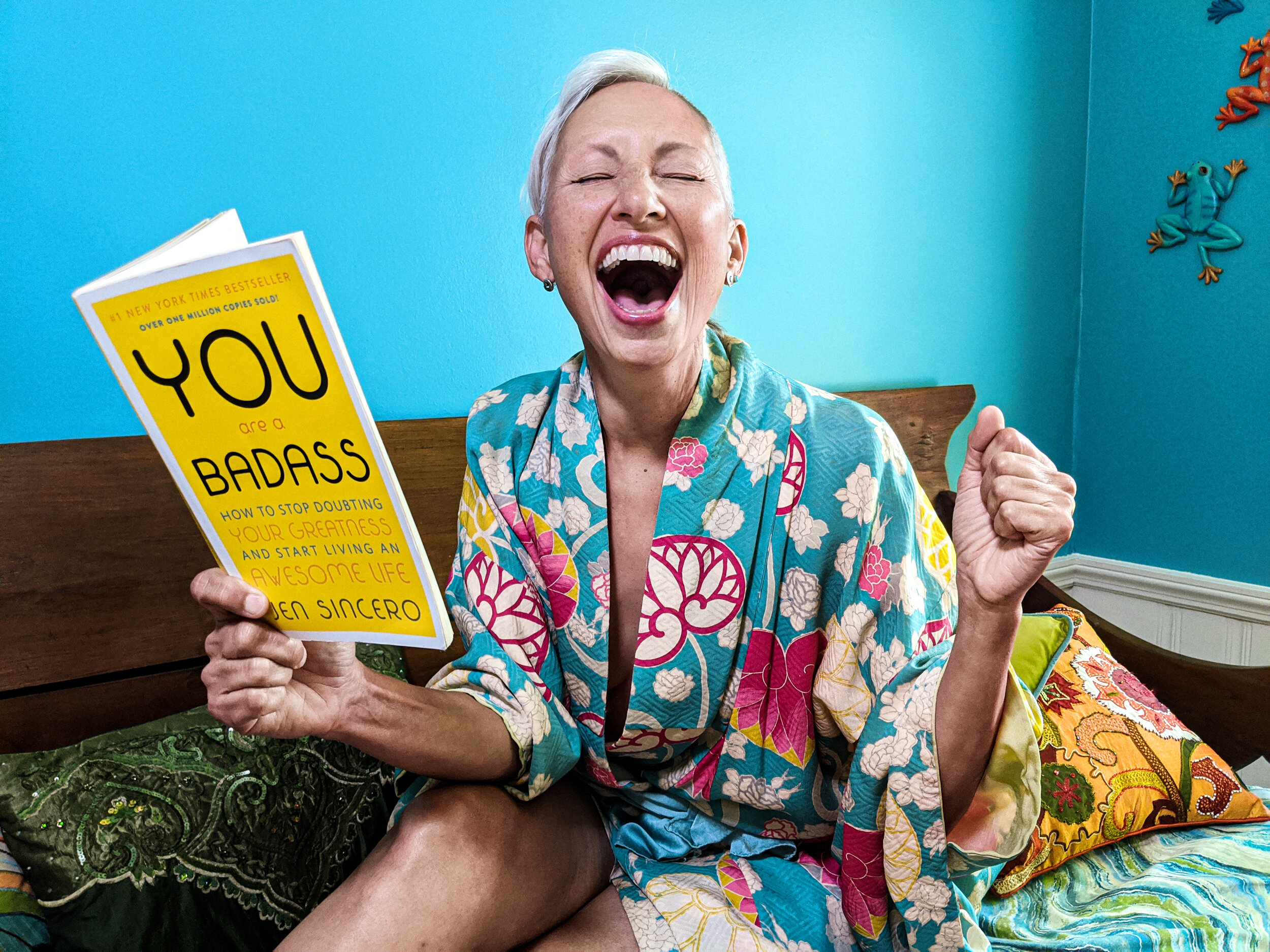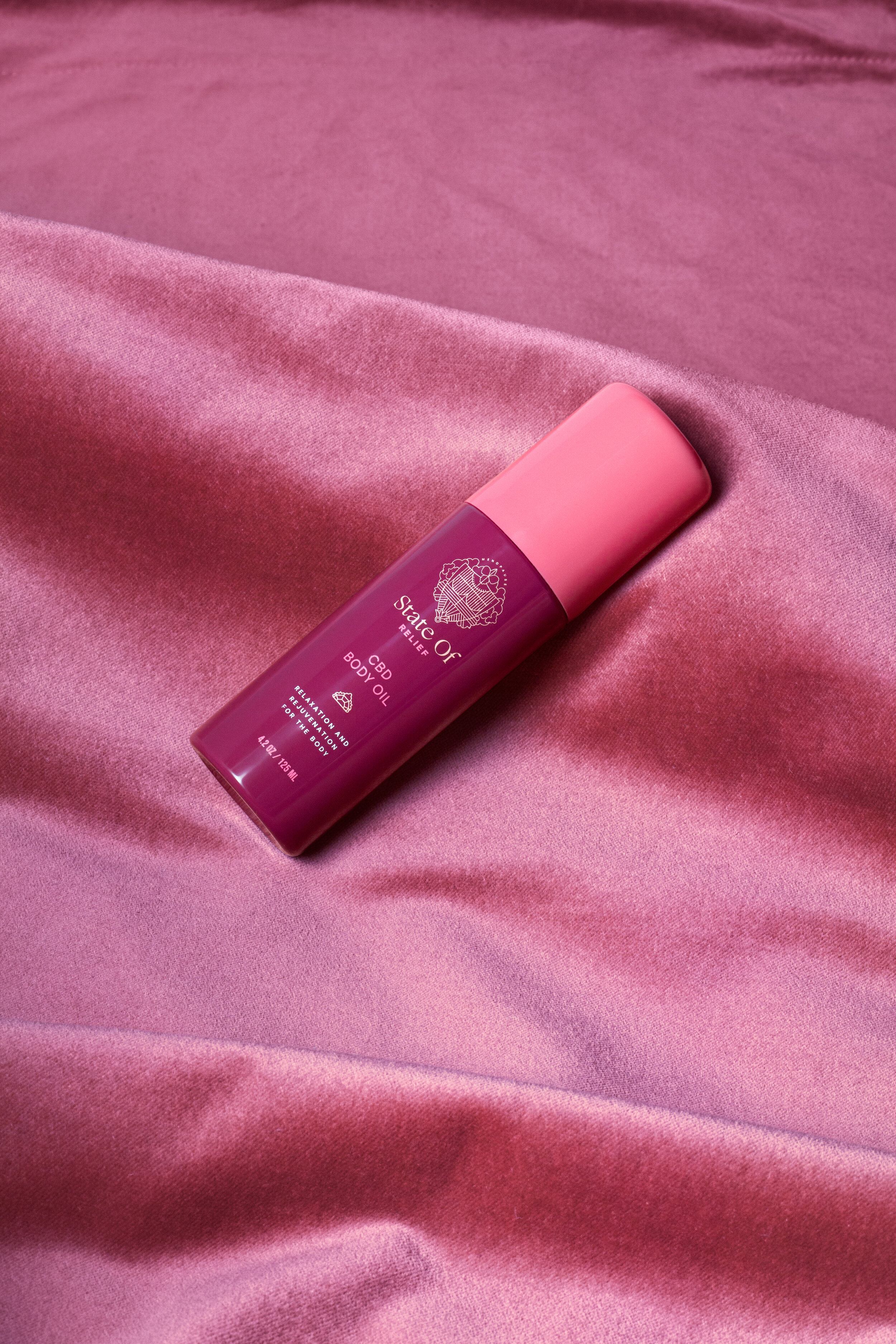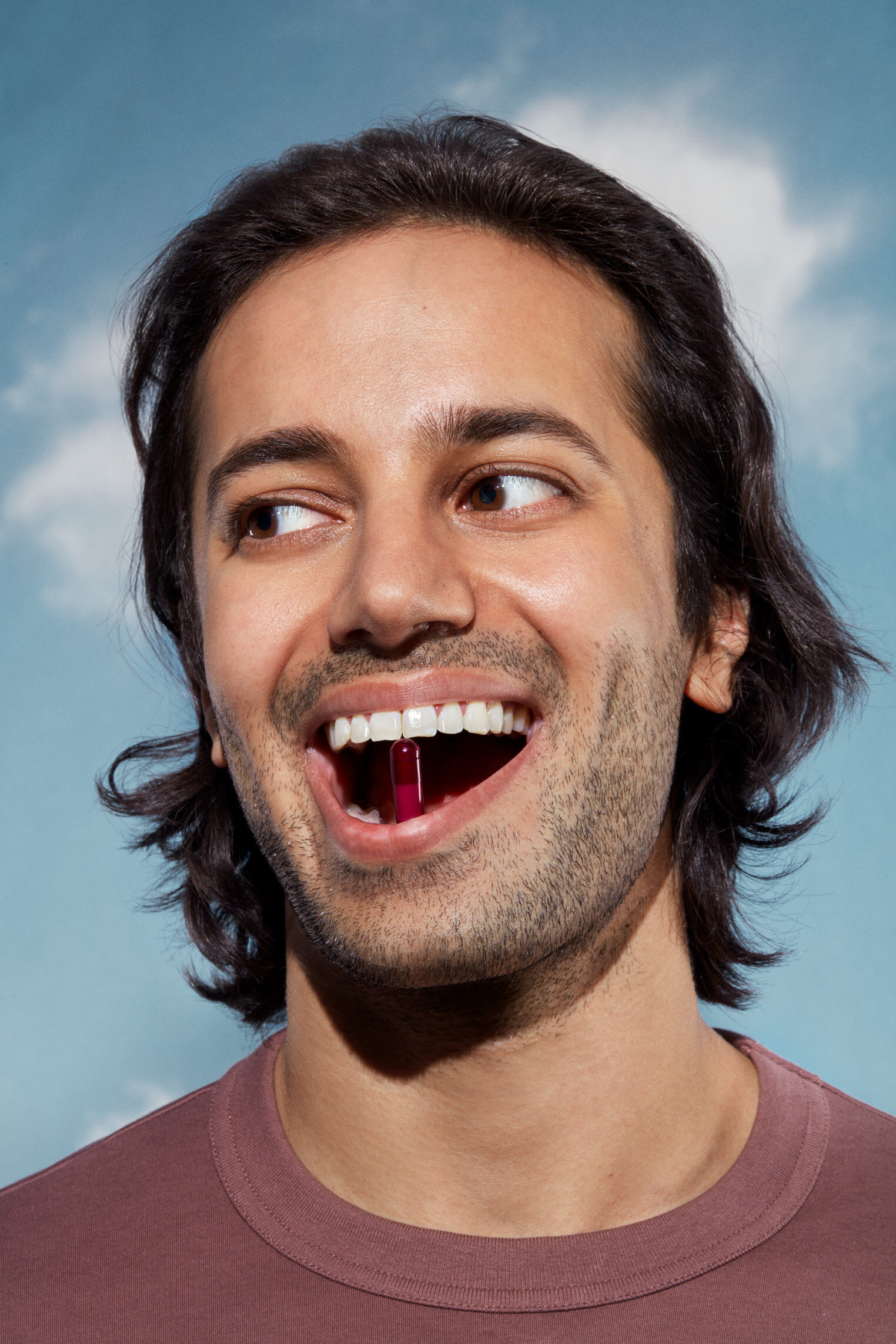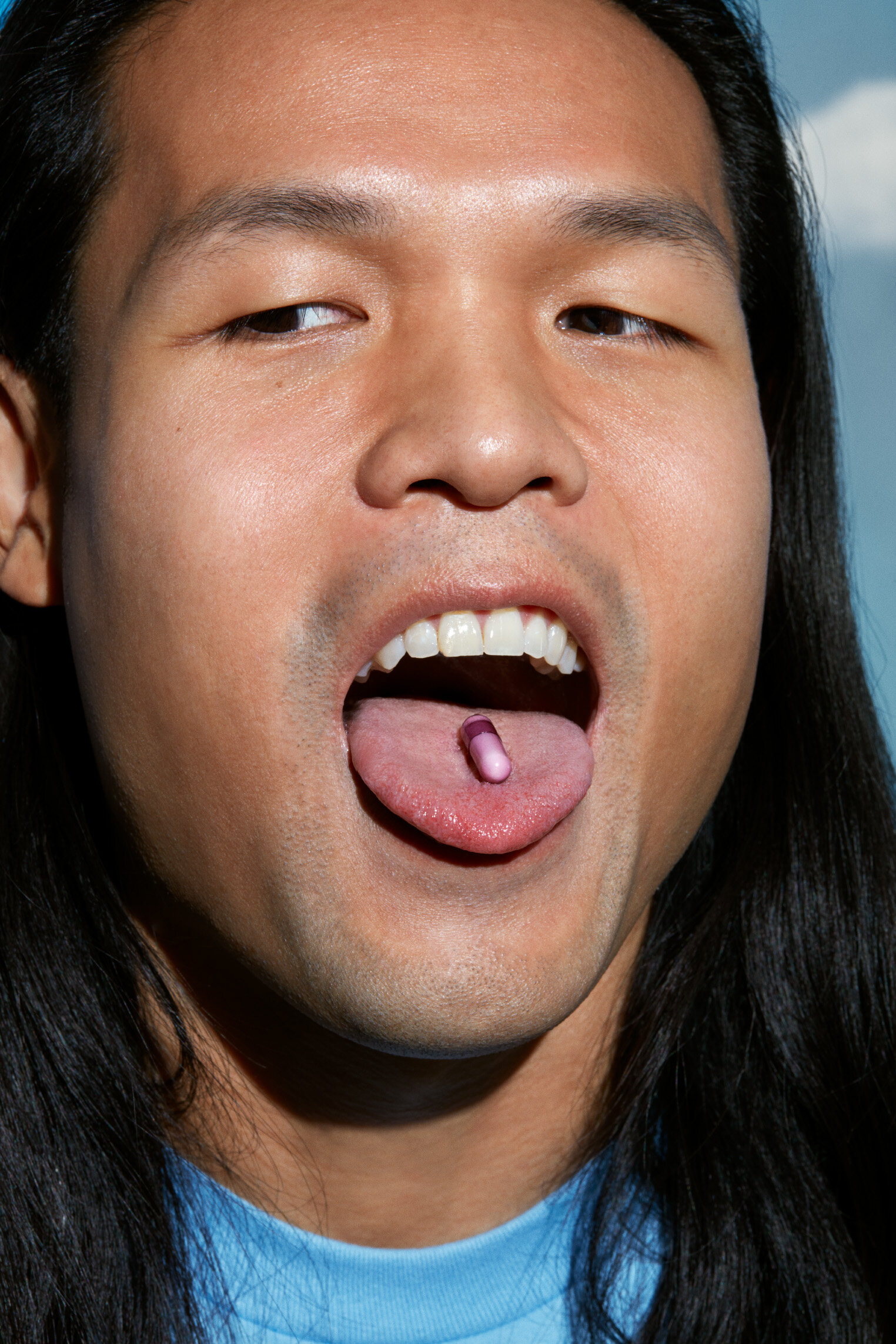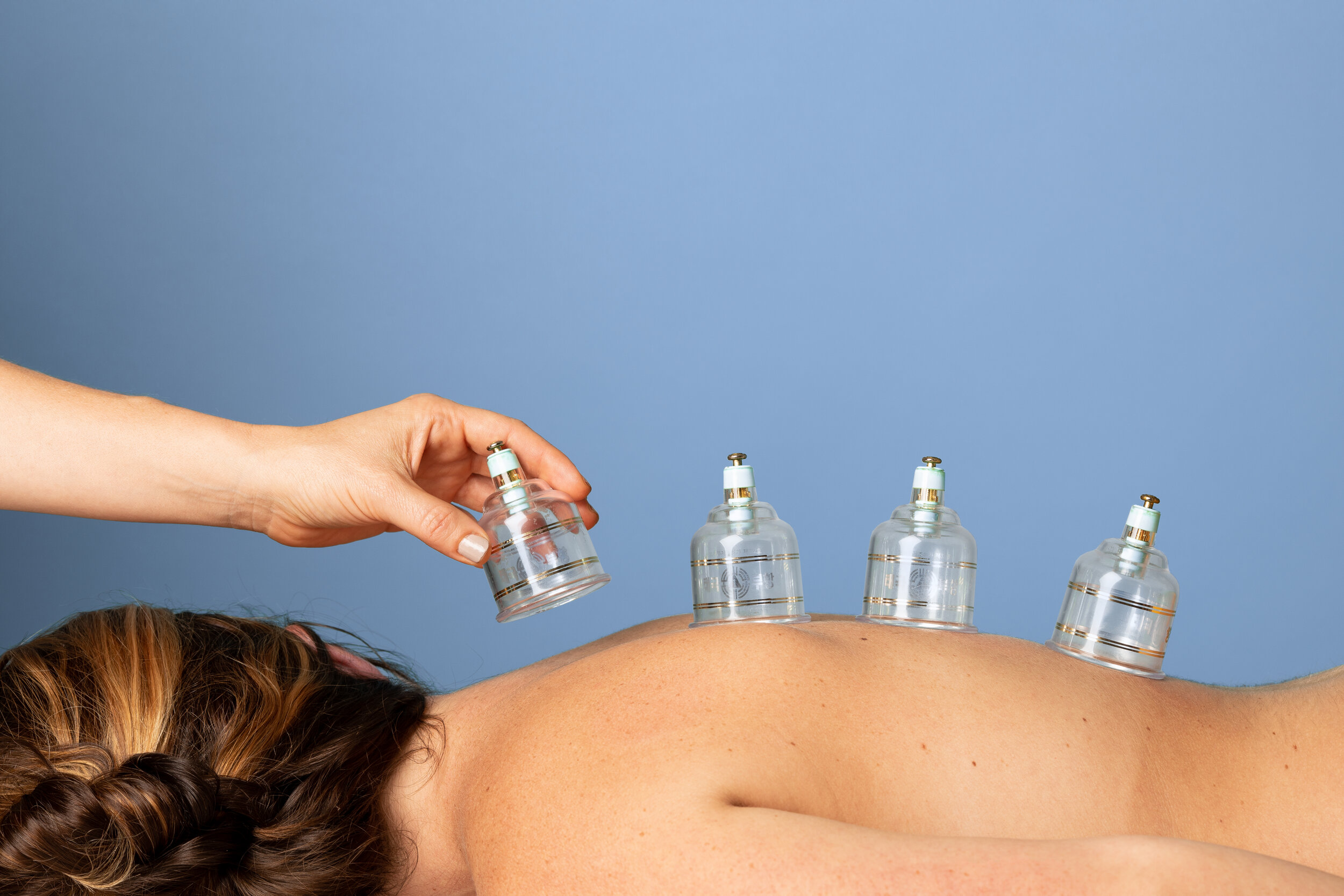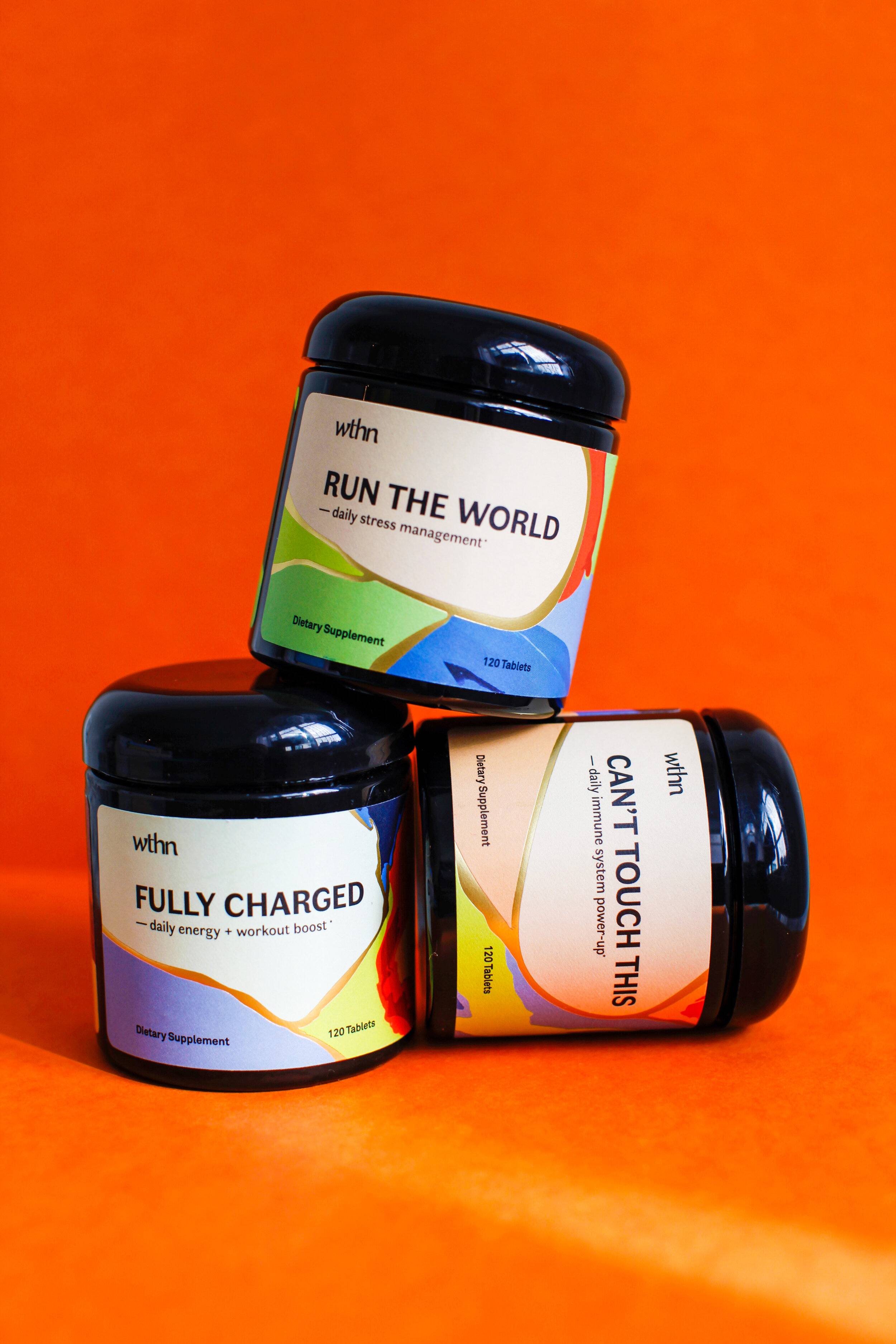BUSY WIPES, JAMIE STEENBAKKERS: Zero Waste Wipes
Personal care on the go usually hinges on one product – wipes. Cleansing, freshening up, a quick swipe can take you from sweaty to ready in a few seconds. Unfortunately, wipes aren’t the most eco-friendly part of our daily routine. About 90% of all wipes on the market are made entirely of non-recyclable plastic, and many contain harmful ingredients that are just as bad for you as they are for the planet. What to do? Turn to Busy Co., a personal care company focused on sustainable and healthy solutions for (unsurprisingly) busy people!
Personal care on the go usually hinges on one product – wipes. Cleansing, freshening up, a quick swipe can take you from sweaty to ready in a few seconds. Unfortunately, wipes aren’t the most eco-friendly part of our daily routine. About 90% of all wipes on the market are made entirely of non-recyclable plastic, and many contain harmful ingredients that are just as bad for you as they are for the planet. What to do? Turn to Busy Co., a personal care company focused on sustainable and healthy solutions for (unsurprisingly) busy people!
We talked to Busy’s Co-Founder and COO Jamie Steenbakkers about how she bootstrapped the company out of college and why transforming personal care is her chosen path.
“Just about everyone in my family is an entrepreneur.” – Jamie Steenbakkers
Jamie is a characteristically friendly Canadian, who grew up surrounded by business owners, including her grandparents, mom, and dad. Her father is in property development and owns a racetrack, where Jamie spent her formative years.
“I was the youngest woman in Ontario to be a racecar instructor and driver. At 16 years old I was an AC certified instructor, teaching 50-year-old men how to drive their Porsches properly. I think that's where I got a lot of my spirit - the experience at the racetrack.”
For college, Jamie was ready to venture to America to be in the heart of business and innovation. During undergrad at Babson, she took a foundation in entrepreneurship course where she met her co-founder, Michael, and started the company that would become Busy. They invented and produced a small run of a dry shave gel that made it easy for women to shave on the go (based on Jamie’s own needs), and their project took off!
“We developed a whole line of products around why all these women were buying the shave gel,” Jamie said. “It was because they were busy, they were running around and they were trying to balance a job and kids and school and sports and all these different things. So, we built a line around that woman. We had a dry shampoo, a dry conditioner, body wipes, and the dry shave gel.”
COO and Co-founder, Jamie Steenbakkers.
The Aha Moment
“We realized that our body wipes were our bestseller tenfold. Who cares about the shave gel? These body wipes are selling like hotcakes. We decided to double down on wipes.” – Jamie Steenbakkers
At the time named Busy Beauty, the company shifted its focus to the bestselling wipes and expanded into wipes for the face and body with various scents. Jamie and Michael pooled their own money and won several competitions to keep the business going. As their senior year approached they decided to turn the passion project into their post-grad job in 2018.
“We needed enough money to be able to support ourselves with salary, and get an office and be a real company, essentially, once we graduated,” Jamie said. “We raised $500,000 the summer that we graduated from local entrepreneurs. The first snowball we got was John Replogle - the CEO of Burt's Bees and Seventh Generation. He was just a huge inspiration for us and introduced us to a lot of the other investors in that round.”
Today Busy Co., which officially launched in 2020, is a line of zero-waste wipes giving women the freedom to freshen up in five minutes with face, hand, sanitizing, deodorant, feminine, and (best-seller) body wipes. Busy goes above and beyond recyclable, using upcycled cotton fabric for most of their wipes.
“Not only are our wipes biodegradable, but we're also not actually creating anything. We're just taking waste and we're repurposing it, Jamie said. “And the biggest thing about our wipes is that they're unbleached, so they are a lot healthier. As an entrepreneur, I want to feel good about what I'm doing. I don't want to just sell you fast products that get you ready fast.”
Marketing Highlights
After years of incubating Busy, Jamie has a strong grasp on her customer base - who she considers solution seekers and beauty enthusiasts. For the beauty enthusiasts, Busy offers much more than a quick refresh. They’re a wipe and serum in one, formulated with hyaluronic acid, vitamin C, retinol, and squalene oil.
Busy has grown through strong retail distribution and standout partnerships, including Smile Makers to hit the sexual wellness trend and a hard-to-get airline partnership with JetBlue.
“We find that doing as many partnerships as we can do is really fruitful. With JetBlue, things like that, you're not making a ton of money off these deals by sending a hundred thousand wipes, but it's amazing exposure. We have people to chat to us all the time, like, ‘Oh my gosh, I saw your wipes on JetBlue. How did you do that?’,'' Jamie said.
Jamie has transformed her business multiple times since its inception and is ready to propel Busy to heights that set a new standard for self-care.
“One of the most challenging things we did was going from shave gel to a suite of products and then going from a suite of products to just wipes. So much thought goes into each of those transitions.” Jamie said. “Now we're going into our Series A, which is really exciting.”
The Advice
Jamie turned her college course idea into a full-fledged beauty company. We’re listening! Her advice for launching your own company is below:
You have to start somewhere. Don’t spend too much time perfecting your first product - launch with an MVP and follow the clues to take you where you’re meant to go.
On that note, be flexible! Be able to pivot and move your business plan in whatever direction you get pulled in.
For those in the beauty space, join the Cosmetic Executive Women's organization for professional development.
Ready for good for you, good for the planet, and time saving self-care? Check out Busy wipes.
Photo courtesy of Busy.
Written by Kendall Embs.
WHOLIER, LISA GONZALEZ-TURNER: The Vegan Vitamin
Plant-based diets have moved out of the fringe and into the mainstream as conscious consumers adopt the lifestyle for health, environmental, and moral reasons. The past decade has seen the introduction of dozens of new food brands in the plant-based market. In fact, grocery sales of plant-based foods that directly replace animal products have grown 29% in the past two years to $5 billion. While it’s easier than ever to be vegan, what isn’t easy is filling the nutritional gaps specific to a plant-based diet. That’s why Wholier is here, with a vitamin and community to help plant-based people live their best lives. Founder Lisa Golzales-Turner talked to us about coming up through the food world and ultimately solving a problem close to her heart (and stomach).
Plant-based diets have moved out of the fringe and into the mainstream as conscious consumers adopt the lifestyle for health, environmental, and moral reasons. The past decade has seen the introduction of dozens of new food brands in the plant-based market. In fact, grocery sales of plant-based foods that directly replace animal products have grown 29% in the past two years to $5 billion. While it’s easier than ever to be vegan, what isn’t easy is filling the nutritional gaps specific to a plant-based diet. That’s why Wholier is here, with a vitamin and community to help plant-based people live their best lives. Founder Lisa Gonzalez-Turner talked to us about coming up through the food world and ultimately solving a problem close to her heart (and stomach).
“The trend with my entire career and my life is I’ve always tried to defy what was expected of me.” - Lisa Gonzalez-Turner
Lisa, the youngest of three girls, grew up outside of Philadelphia. She likes to compare the eldest child to a CEO who’s always in control, while she credits being the youngest with her lifelong desire to break the rules.
“I was always devious from a very early age, always the one bending rules. ” Lisa said. “I always had different hobbies I was exploring. It was a combination of finding different avenues of creativity and being defiant in the classroom and in my personal life. “
With both parents as doctors, Lisa thought that medicine was her path in life and initially majored in pre-med biology at Penn. Later on, she switched to the popular Politics, Philosophy, and Economics major because of the array of more fulfilling opportunities it opened up for her career. Lisa’s first job out of college was at the iconically pink PR firm Alison Brod, a departure from many of her fellow students at Penn who ended up in typical finance jobs.
“I was excited about being a part of all of these different businesses,” Lisa said. “I think that PR and communications generally are frowned upon as being not super strategic, but Alison Brod is full of hustlers. They’re brilliant and work extremely hard. We were not publicists - we were coming up with campaigns and massive events for multinational companies.”
After 4 years with the firm Lisa took 3 months to backpack around Europe. In a month-long stint on a farm in Sweden, she adopted a plant-based diet, the personal motivation behind eventually founding Wholier.
“I became weary of the lack of transparency in the supply chain and I was afraid of not knowing where my food was coming from. People who live the longest generally eat the least meat and dairy. At the time I was vegetarian, and after my experience on the farm I cut dairy out of my diet,” Lisa said.
Upon returning, Lisa wanted to get more involved in food and ended up working for Inday, Spindrift, and Daily Harvest. While at Daily Harvest Lisa oversaw community and public relations, social media, events, and built out the company’s nutrition network. She saw the company grow from a scrappy team of 25 to 100 employees in a beautiful office in Chelsea.
The Aha Moment
“I just didn't understand why there wasn't something that was tailored to me. We segment things based on men and women, but we don't have things specifically about someone's diet. That was the initial problem and I was like, ‘what's the bigger picture here?’” - Lisa Gonzalez-Turner
Over her years of working with brands and innovative companies, Lisa had an array of business ideas ranging from packed foods to tech products. Ultimately the decision to start Wholier came from a place of personal need when Lisa learned her plant-based diet was leaving her lacking in some nutritional areas. She went to the doctor and discovered she was low in vitamins B12, D3, and iron - all common deficiencies experienced by people who are not eating meat and dairy.
“I like to caveat that by saying it’s not because I'm vegan, it's because I'm human,” Lisa said. “9 out of 10 people in the US are nutrient deficient because of something. Because I’m vegan I have different nutrients I’m missing.”
Lisa’s journey through the vitamin aisle brought her to the realization that in order to make up her deficiencies with supplements, she would have to cobble together a ridiculous amount of pills. She knew others would be facing the same problem, and began working on Wholier in 2018.
“Plant-based lifestyles are being adopted at an extremely rapid rate because we now realize the impacts it can have on your health, and obviously the environment. Why wasn’t there a vitamin that was specifically adapted to this group of people that have different needs, different values, and different desires? A multivitamin felt like a really good entry point,” Lisa said.
Launching Wholier
“I'm not from the supplement industry so I'm not jaded by the way things have been done before. I'm doing them my own way. I think that really is important. “ - Lisa Gonzalez-Turner
Lisa rolled out Wholier with a tested, iterative approach, reaching 1,000 subscription customers in the first three months. From there, she shut down marketing to focus on listening to her customers and improving the product.
“When I launched Wholier I always knew things were going to change,” Lisa said. “I thought the product was 90% there, but I wanted to get it out into the world and see. I had bootstrapped it, so it was not intended to be perfect, it was intended to be a test. I spent the first 3 or 4 months learning from our customers, sending personal emails to them, and doing surveys to understand what they really cared about. From there I took the learnings and went back to the drawing board, tweaked the formula and brand a little bit, and tweaked our packaging.”
The new and improved Wholier officially launched in August 2020. Currently, the company offers a whole food multivitamin to meet the needs of plant-based people, in a no-nausea, delayed-release capsule. Lisa and her advisory team of nutritionists and doctors combed through hundreds of clinical studies to hone in on the right dosage of 8 food-based nutrients in their most bioavailable forms. Her larger ambitions are to continue to build the company into a set of tools for plant-based people to be as healthy as they can be at any point in their process.
“What I want us to offer is a home for anybody who is on their journey to be plant-based, whether you're entering into it or you've been on it for decades. I think that historically veganism has been very rigid and forces you to live one way or you're not part of the community. I want Wholier to be a place of acceptance, meeting people where they are and helping them along the way. That means offering them products that support their nutritional needs, and down the line being a really robust content resource. We want to share the stories of other plant-based people and their journey to becoming vegan because most of the time it's a progression,” Lisa said.
The Advice
Lisa has years of experience working with startups as a consultant, in-house, and by launching her own. We asked for the most important lessons she’s learned along the way:
Trust your gut, especially when it comes to the people around you. It takes time to undo mistakes made by bringing on the wrong people to your team.
Go in with a beginner’s mindset to everything that you do. Go in believing that you know nothing and absorb information from other people.
Don’t be afraid to take the first step. Once you start getting the momentum going, everything seems more manageable.
The only thing you can do to keep yourself from failing is continuing to move! If you fail, pick yourself up and do it again. The worst thing you can do is not try.
Looking to add a vitamin to your vegan vida? Check out Wholier.
Photo courtesy of Wholier.
Written by Kendall Embs.
ARFA, ARIEL WENGROFF: Co-Developed Personal Care
So many companies in the DTC space fit the same mold - the founder goes into a store, sees something that’s missing, poorly executed, or broken, and launches a slick eCommerce brand targeting the millennial demographic with a better product. It’s like the “Subway for X” that brought us Chipotle, but with CPGs. We love it! But, there is a new company digging deeper into the “why” behind the products they bring to market. Unveiled in early 2020, Arfa is a platform and collective for the development of need-based personal care brands. We talked to Co-founder Ari Wengroff about her purposeful approach to brand and product development and the two unique brands that Arfa has brought to the market so far.
So many companies in the DTC space fit the same mold - the founder goes into a store, sees something that’s missing, poorly executed, or broken, and launches a slick eCommerce brand targeting the millennial demographic with a better product. It’s like the “Subway for X” that brought us Chipotle, but with CPGs. We love it! But, there is a new company digging deeper into the “why” behind the products they bring to market. Unveiled in early 2020, Arfa is a platform and collective for the development of need-based personal care brands. We talked to Co-founder Ariel Wengroff about her purposeful approach to brand and product development and the two unique brands that Arfa has brought to the market so far.
“I always wanted to understand human behavior better, and the way people connected and worked together. That was always a key driver for me.” - Ariel Wengroff
Ariel is a proud Chicagoan, who grew up surrounded by the influence of her mother’s psychology practice. She cites her childhood curiosity and a knack for storytelling as early indicators of her desire to know what makes humans tick.
Her first job post-college was in politics, organizing on the ground for the Democratic party in 2010. Finding too much red tape in the political world, she transitioned to media where she felt she could dive deeper into the human experience.
Co-founder of Arfa, Ariel Wengroff above.
“I’ve always been very curious about how people connect,” Ariel said. “It’s not about being stuck in a specific medium; it’s what is the best tool to allow people to know something that might not be like themselves and therefore potentially create change from that.”
Working at Vice, Ariel co-created the show Woman with Gloria Stinem, which focuses on niche issues women experience on an international scale. Honing her skills as a producer gave Ari the ability to uncover people’s inner motivations and struggles by just listening. This set her up for her future role at Arfa, where she connects with individuals to discover what needs are not being served.
“Arfa is a house of brands that are focused on personal care and hoping to make people feel more comfortable in their own skin.” - Ariel Wengroff
Ariel’s “Aha Moment” for Arfa was more of an ongoing mission to create something that connects with people and collapses walls between product and consumer. After working in both politics and media, she felt that brands had a stronger ability than governments and media entities to create traction with people and operate in a simpler way. She met Henry Davis, formerly of Glossier, who would become one of the four future co-founders of Arfa. They connected on the desire to build a company that answers deeply personal needs.
“If you're creating products and brands, people should be a part of the process,” Ariel said. “It should be something they actually want to use. It should feel like when they’re buying your products they’re buying their voice back. How can you do that if you’re not involving them and listening to them along that journey?”
With this in mind, Arfa was set up in 2019 around a collective of “co-creators” - a real group of hundreds of people aged 16-72 with an authentically diverse demographic makeup. Ariel dug in with the collective to identify “need states” that could be met with a branded solution.
Co-developing Products
“It’s about establishing a connection, and friendship,” - Ariel Wengroff
Arfa’s business model is structured in a way to provide equity to the co-creators who help develop products. Collective members provide in-depth personal information and feedback on things like formula, packaging, scent, and branding. In return, they are viewed as shareholders, as Arfa believes in giving power back to the community of consumers.
Arfa’s first year of collective-driven product and brand development gave Ari a deep understanding of the co-creators, learning about everything from their hygiene habits to family life. Because Arfa was established to focus on personal care, the conversations she had were intimate, took place in small groups, and unveiled little-talked about needs.
“The collective is made up of people who have full-time jobs, full time lives, full-time families. This is an opportunity for them to express themselves and be listened to, and for us to be that Willy Wonka factory to go back and make these collective-identified need states something that is a reality.”
The collective discussions and connections led to the launch of two Arfa brands, State Of Menopause and Hiki, both taking a unique approach to personal care for specific needs.
“Hopefully when someone sees the product they'll know that someone like them helped make it and participated in it, and feel a little bit more comfortable as they are.” - Ariel Wengroff
The first brand launched under Arfa’s umbrella is Hiki - a personal care brand for anyone who sweats (so, everyone). Hiki offers deodorants, chafe sticks, and wipes with a body-positive, stigma-free approach. Convenient kits cost $30-$38, and single items like their flagship deodorants and chafe stick cost $14.
During collective sessions, the Arfa team discovered the shame and embarrassment that surrounds sweat and body odor, and created Hiki as a solution by speaking to that need for effective and guilt-free sweat care. Ari was particularly impressed by the group’s unified stance rejecting gendered products in this category.
“People of all different backgrounds agreed Hiki should be a genderless brand. These things are table stakes at this point, and that made us really happy,” Ariel said.
The second brand to come out of Arfa is the just-launched State Of Menopause, a skincare brand developed to meet the varied needs, phases and feelings experienced by women in menopause. Like Hiki, State Of aims to break down stigma in a personal care category and give its target audience products that meet needs without imposing.
“Whatever the brand is, we want you to feel a sense of relief,” Ariel said. “We want you to have more product education and understanding, and we want to flip the script. We say, ‘this isn't a problem that needs to be solved’. We’re going to give you management tools, but if you forget your Hiki deodorant one day it's ok.”
Ariel’s long term-vision for Arfa is to continue launching impactful brands and to build a tech stack for others to follow suit.
“We see ourselves as an engine for development,” Ari said.
The Advice
With Arfa, Hiki, and State Of Menopause, Ariel can be considered a founder three times over! We know she credits the collective for their crucial role in launching these companies, but we are happy to take Ariel’s advice for anyone entrepreneurial:
Be your biggest believer. Nothing starts with no. Be the first, last, and loudest voice in the room.
Be sure you are giving your team members and co-workers credit, voice and time. You're only as good as your team and your team is only as good as how they are valued and respected.
If you have an idea and a passion you should pursue it, but the world doesn't necessarily need more things. Consider what you are trying to create, and if there is a different way to create it that isn't just physical products.
Struggling with sweat? Check out Hiki for no-BS deodorant products. For more on how Arfa is building for purposeful personal care, visit their website here.
Photo courtesy of Arfa.
Written by Kendall Embs.
WELLORY, EMILY HOCHMAN: Your New Nutrition Coach
There are hundreds of thousands of wellness experts out there - be it nutritionists, dieticians or health coaches. On the flip side, over a hundred million Americans struggle with healthy eating and the effects of diet-related illnesses. Striving to bring them all together under one roof is Wellory, a mobile app launched in September with a new approach to healthy eating and a cure for usually pricy personalized nutrition counseling. We talked to founder Emily Hochman about the history behind her entrepreneurial spirit and her process for solving one of the greatest problems of her generation.
There are hundreds of thousands of wellness experts out there - be it nutritionists, dieticians or health coaches. On the flip side, over a hundred million Americans struggle with healthy eating and the effects of diet-related illnesses. Striving to bring them all together under one roof is Wellory, a mobile app launched in September with a new approach to healthy eating and a cure for usually pricy personalized nutrition counseling. We talked to founder Emily Hochman about the history behind her entrepreneurial spirit and her process for solving one of the greatest problems of her generation.
The Childhood
A proud, ride-or-die New Yorker, Emily grew up in a family of entrepreneurs and was gainfully employed from the age of ten. Everything from “stoop sales” to helping out neighborhood families and working at local businesses filled her pre-university resume.
“I would make bracelets and sell them,” Emily said. “Because both my parents were entrepreneurs, everything was ‘how do you turn that into a business.’ Every idea we had, ‘now go turn it into something’. No idea was just an idea, it had to be executed.”
CEO and Founder, Emily Hochman.
Emily attended Bucknell University, where she majored in Art History with a double minor in Italian and Dance (she also loves to remind us that 90% of grads do absolutely nothing with their specific degree!). It was in her first year of college that she developed unhealthy eating habits and ultimately went on the wellness journey that inspired her to start Wellory.
“I ended up getting very sick because I had a very structured diet and was too into dieting. I went to the doctor and they told me I had polycystic ovary syndrome, hyperthyroidism, I was prediabetic and would never have children. They told me to take medication and I would be fine. Instead of taking medication, I became obsessed with figuring out how I became unhealthy, and how could I get healthy,” Emily said.
Emily dove into the health and wellness world and while she found a lot of solutions in the fitness space, she found very few resources in terms of nutrition - what to eat and why. She became a Certified Health Coach through the School of Integrative Nutrition and tells us she cured herself of every potential chronic illness by understanding the power of food as medicine. She realized that she wanted to bring her learnings to the masses.
“Everyone had their own story, their own relationship with food, their own challenges, and nobody knew where to turn,” Emily said.
After a tour in the tech world at WayUp where she created and held multiple positions on the sales side, Emily was ready to strike out on her own and started Wellory as a solo founder.
The Name
Like many great ideas, the name Wellory came after a few glasses of wine! Knowing the companies she was inspired by were purposeful nonsense words, Emily took to the drawing board (and GoDaddy to double-check availability) to find the perfect name.
“I had very large aspirations for this company. I wanted to be like Google, Facebook, Airbnb and Pinterest - tech giants that are household names that you know. All these companies, for the most part, are made-up words. When you hear the word Wellory you get a sense of what category we’re building in,” Emily said.
Business Model and Marketing
“We are building the anti-diet app.”
Wellory is a subscription service costing $89.99 a month that users can cancel at any time. The company prioritizes transparency with its customers, something they’ve seen other services in the space fail to provide.
“There are a lot of businesses in the diet world that are very tricky and say you have to pay for 6 months upfront or you can't renew. Because we want to be a leader in the anti-diet world we want to be very careful in how we think about that and our phrasing,” Emily said.
Wellory is a “marketplace pick” - they pair users with one of their 650+ nutrition coaches who is with them every step of the way. Throughout the process, you share photos of everything you eat with your coach to come up with a tailored plan that's right for you. Something that makes Wellory even more differentiated from other dieting or nutrition services is their truly first-ever approach to nutrition planning.
“We actually work with our clients throughout the chronology of their day to build healthy habits. We’ll work with you on breakfast first, giving you ingredients, recipes, feedback, and education. Then it's lunch, then we work with you on dinner. It's not a quick fix, good luck, see you later. It’s actually helping you build sustainable habits,” Emily said.
Wellory’s biggest marketing highlight to date? An OOH campaign in the subway, a major life goal for a native New Yorker like Emily.
Challenges
“Patience is really hard. Saying: here's all the things we want to do, but here's where we’re at, and we have to do all these things to get there.”
As a founder working with both full-time employees and agency/contractor teams, Emily shared that one of the hurdles she’s faced has been understanding that you get different levels of commitment from people who are in the trenches with you vs. outsourced.
“Agencies have such smart people on board, but there's nothing like having someone who’s on your team with the same aligned incentives, who can really dive into the business,” Emily said.
The wellness space itself faces a challenge of a lack of diversity. 92% of professionals in the nutrition expert industry are white females, and Wellory is dedicated to creating opportunities for more diverse candidates.
The Advice
Emily was thoughtful in the wisdom she shared with us - some passed down from her mother who has always encouraged Emily to stick with her goals.
“Businesses take different forms and shapes, and as long as you never give up and keep figuring it out you'll find your next path forward. Wellory will always be something as long as I keep putting life into it,” Emily said.
Emily’s other tips for future founders:
Do the hard work and gather as much data as early on as possible.
You’re just one message away from being in front of anyone you want to talk to. Be smart about your meetings, but in the early stages talk to as many people as you can.
Block off your calendar! Emily doesn’t have to worry about what to work on throughout the day because she has already planned it out for herself.
Download the Wellory app here to kickstart your way to better nutrition.
Photo courtesy of Wellory.
Written by Kendall Embs.
ELEKTRA HEALTH: Your Guidance To Menopause
Menopause. It might be one of the scariest - and least understood - words in the women’s health dictionary. 80% of women report negative quality of life factors while going through menopause, but once on the other side women often find an unburdening, freeing, and incredibly creative sense of renewal. Aimed at educating women and removing taboos around menopause, Elektra Health is here to create a new digital health tool for women in this phase of life. With World Menopause Day approaching on October 18, we talked to Elektra founders Alessandra Henderson and Jannine Versi about why they’re tackling this important and overlooked issue.
Menopause. It might be one of the scariest - and least understood - words in the women’s health dictionary. 80% of women report negative quality of life factors while going through menopause, but once on the other side women often find an unburdening, freeing, and incredibly creative sense of renewal. Aimed at educating women and removing taboos around menopause, Elektra Health is here to create a new digital health tool for women in this phase of life. With World Menopause Day approaching on October 18, we talked to Elektra founders Alessandra Henderson and Jannine Versi about why they’re tackling this important and overlooked issue.
For those who don’t know (and there are a lot of you!) menopause is a natural decline in the reproductive hormones when a woman reaches her 40s or 50s, resulting in a permanent end of her menstrual cycle. No more periods = the good news. Along the way, menopause can be a 7-10 year journey for most women, with 34 known symptoms. Until Elektra came to shake up the sector, there were few accessible resources for women to learn about menopause and receive treatment.
“The fun for us is we get to meet these badass women who are taking things into their own hands and really changing the conversation around this.” - Alessandra
“Elektra Health is on a mission to smash the menopause taboo. We empower women who are navigating the transition with access to high quality, world-class care, education, and support,” Jannine said. “We are a digital platform, and we have fantastic menopause experts - physicians who are steeped in menopause and know how to treat it well.”
Surprisingly, a large percentage of OB-GYN programs do not train their doctors in menopause and how to treat its symptoms, which include hot flashes, night sweats, and brain fog to name a few. Elektra is dedicated to providing women education on what is going on in the body, what to expect, and evidence-based tools and solutions to get through it. Elektra’s founders are focused on the light at the end of the tunnel, encouraging the women in their network to look forward.
“There are positive things - you don’t have to deal with the hassles of menstruation and birth control anymore. We hear from women that they feel incredibly creative, and if you can get your symptoms under control you feel a lot more energy and a new type of creativity. Women tell us you really just don't give a sh** anymore. A lot of women who have moved through this transition have a new lease on life and how to spend it. It’s necessary to focus on moving into that brilliant phase,” Alessandra tells us.
On Finding a Co-Founder
Alessandra had extensive experience in startup environments and left her job at Human Ventures to start Elektra in January 2019. She met with several potential co-founders who did not share her vision, but when she met Jannine things clicked and a casual introduction turned into a 3-hour conversation.
“Most people, when you say ‘I want to build something in women's health’ really focus on fertility. It's a clear line to egg freezing and postpartum. Jannine was one of the first people who got it immediately on the importance of menopause,” Alessandra said.
Jannine’s background made her the perfect fit to co-found Elektra. She was working in health tech and is the daughter of a urogynecologist, a doctor who focuses on one of the main symptoms of menopause. The topic Elektra was facing was not as foreign to her as it had been to others, who only thought about reproduction when it came to women’s health.
“Alessandra was incredibly compelling and I totally understood the issue right away. I’m fortunate to have people in my life who are in the academic and medical space around menopause, so we've tapped into some of those networks of physicians who really see this as a massive opportunity in a space that has been lacking in innovation. We’re happy to have the support and championing of physicians who really know their stuff and have been looking at this for decades,” Jannine said.
Alessandra serves as the CEO focused primarily on the consumer-facing aspects of the business, while Jannine is COO focused on clinical operations. The co-founders emphasize the collaborative nature of all of their work, especially on marketing, growth, and fundraising.
Another thing they have in common, both Alessandra and Jannine got their undergrad education in humanities disciplines! Jannine’s intro to entrepreneurship was in college as the 3rd employee at Insomnia Cookies - a part-time cookie baker working the graveyard shift. Alessandra came into the startup world through her original passion for art and was an early hire at Artsy. She founded the MIT Startup Studio in NYC before heading to Human Ventures.
“I fell out of love with the art world and more in love with building things. Early-stage innovation really speaks to my heart,” Alessandra said.
Business Model and Marketing
Elektra launched its service in March 2020. Currently, the startup operates as a D2C platform primarily in New York, and its service offering is broken into several options to create an effective but accessible experience. Women can receive one-to-one consultations with Elektra physicians, who provide guidance and hormone therapy prescriptions. Elektra also offers one-to-many group programs and education, similar in format to pregnancy classes women attend. Eventually, they see the programming expanding across channels and geographic borders as Elektra grows.
Elektra’s special sauce is their unapologetic approach to Menopause education.
“Alessandra built the Elektra Digest which is our newsletter with open rates like I’ve never seen,” Jannine said. “I think it's this signature mix of taking a bold stand, being highly science-based and speaking to women like adults rather than being all pink and feathers and cartoons. There’s something that really resonates with this Gen-X audience.”
The Name
Early on, Alessandra hosted a collaborative naming party with some trusted advisors and friends, where they ultimately landed on Elektra, a name Alessandra’s parents were considering for her when she was born! She sees the name as an empowering identity for women.
“I do think about the name when taking that bold stance. Who is your superhero, who are you stepping into as you enter this new phase of life? I think of Elektra as my alter-ego,” Alessandra said.
The Advice
2020 is a crazy year to launch a company, but after their initial success, the women behind Elektra are pushing forward with plans to raise a seed round in the coming months. They shared their most valuable ideals with us to inspire future founders:
Find an awesome Co-Founder! When it comes to building a company 1+1 is greater than 2.
Follow curiosity as opposed to a set path, talk to experts, and read as much as you can.
Learn to ask for help and ask for things, because a lot of times people will say yes.
Check out Shoe Dog by Phil Knight and listen to Jerry Colonna’s Reboot podcast for more insight.
For those interested in elevating your menopause journey, check out Elektra Health here.
Photo courtesy of Elektra Health.
Written by Kendall Embs.
CARE/OF, CRAIG ELBERT: The Personalized Pharmacy
Navigating the vitamin aisle at a chain pharmacy can feel like being lost in the wilderness - unfamiliar figures loom with no clear instructions on what direction to take. Supplements are a $40 billion industry in the United States, but until recently no progress had been made to improve the struggle of identifying and shopping for vitamins. Enter Care/of and Co-founder Craig Elbert, who has an eclectic history in everything from traditional banking to the music industry to high-growth startups.
Navigating the vitamin aisle at a chain pharmacy can feel like being lost in the wilderness - unfamiliar figures loom with no clear instructions on what direction to take. Supplements are a $40 billion industry in the United States, but until recently no progress had been made to improve the struggle of identifying and shopping for vitamins. Enter Care/of and Co-founder Craig Elbert, who has an eclectic history in everything from traditional banking to the music industry to high-growth startups.
With Care/of, Craig (who also serves as CEO) has created a seamless and exciting consumer experience around the necessity of daily vitamins. Craig filled us in on the colorful experience that made him the perfect entrepreneur to tackle the medicine cabinet, and the insight he’s gathered for future founders.
The Childhood
Craig grew up in Des Moines, Iowa, and can instantly call to mind the early habits that hinted at an entrepreneurial mindset. He credits selling baseball cards to his friends at a young age as his first childhood venture.
“I think of entrepreneurialism as creating things, and growing up I wrote music and did creative writing, which captures that idea of the act of creating something,” Craig said. “Building Care/of what’s always been important to me is that I’m building a brand, and that act of creation feels like something more artistic in a way.”
Before Craig reached the opportunity to create something of his own, he found himself looking for the right fit in the corporate world.
“After college, I wound up doing investment banking because that seemed like a thing a lot of people did. I did it for two years and hated it; it wasn't for me. I quit that job with no other job lined up and spent some time trying to write fiction at the public library as part of some kind of quarter-life crisis.” Craig said.
Like many successful founders, Craig had prior attempts at starting something on his own that didn’t pan out. He tried to open a financial consulting business, but his background as an investment banker didn’t line up with the client base he pursued in the boutique retail market. He also worked on a video aggregator for cooking content that never quite took off. Eventually, he reflected on his lifelong passion for music and enjoyment from working at a record store in high school and got a job at Warner Music Group.
“I found that with investment banking there was a lot of high talent density, a lot of really smart people, but there was a low passion for what they were doing,” Craig said. “When I was working at a large public music company I found that the talent density was not as high, but the passion was there. What I wanted was something where I would get high passion and high talent density.”
That desire took Craig out of the corporate machine and into business school at where else - Wharton! After graduation, he started as an early employee at Bonobos when they had just raised their seed round. Craig cut his teeth in the startup world and was able to learn the ups and the downs of building a business, and came to see how a venture-backed brand comes together.
The Aha Moment
Craig was working on ideas with the team at the startup accelerator Juxtapose in 2015 when he discovered both the personal and business motivations behind Care/of, which he ultimately founded with Akash Shah.
“My wife was taking prenatal vitamins and I had been told that I was Vitamin D deficient, so I was shopping this category, but going into the retail experience it just felt so miserable,” Craig said. “At Bonobos we talked about how we make things delightful, how we focus on the customer. This was a category that wasn't focused on the customer, so that felt like an opportunity.”
On the business side, the size of the industry combined with the negative Net Promoter Score made supplements a healthy category for improvement. Some free BSchool vocabulary for you: Net Promoter Score is an index ranging from -100 to 100 that measures the willingness of customers to recommend your products or services to others.
“The consumer experience for vitamins showed up as worse than getting cable installed, or worse than getting health insurance,” Craig said. “These are notoriously bad experiences and this one showed up even worse. There are true consumer issues but also very positive business attributes in terms of market size, a problem we can solve, and margin that lends itself well to a digitally native business.”
“Design-wise, we live in a world of icons and symbols, and it was naturally shortened to one because ‘care of’ is always written C/o.”
There’s nothing like a full room at an accelerator to help you out with name generation. We can definitely see how Care/of came from a brainstorming post-it!
“We had a list of different names and someone had just written C/o, and that one stood out as different. We were looking at names like Habit and Juniper, Heyday which is ironic, and then just C/o. It was great because it looked different, it has care in the name, and serves as an intermediary - like a healthy heart ‘care of’ that person.” Craig said.
“It’s important to build marketing into the products to have as much word of mouth as you can.”
With a major emphasis on packaging as part of the Care/of experience, Craig tells us that great care was given to making each box something that would bring vitamins out of the cabinet and onto the counter. The packages don’t look medicinal, and each box features a new rotating design.
“We’ve worked to take a category which is normally very private and make it fun and social,” Craig said. “That meant thinking through packaging so the daily packs have your name on them, and each one has a different quote or something fun each day.”
As Care/of gained customers who loved their product and the way it looks, they noticed organic traction with press coverage and user-generated images. Craig’s strategy has been to lean into that success and amplify it with paid tactics like influencer posts and sponsored content.
Successes on the marketing side have been met with some operational growing pains they’ve had to overcome. Care/of’s product is personalized which means they’ve packed and sold over 250,000 different combinations and printed unique names on them all, with different collateral in each box.
“There was a lot that I underestimated operationally, but ultimately it winds up being a unique asset and is something that's difficult to replicate,” Craig said.
The Advice
Craig has learned a lot from the founders he’s worked with and from being one himself. His advice to anyone getting into the game:
Just start doing - don’t get too bogged down in strategy and decks. Get feedback as soon as possible.
Consider launching an MVP/Beta Brand to get insights on your product offering without tainting the real brand.
When coming from large corporate jobs into a faster-paced environment be decisive and err on the side of action. Don’t be reactive, but make decisions and push forward.
Looking to ramp up your vitamin game? Get your personalized care here.
Photo courtesy of Care/of.
Written by Kendall Embs.
WTHN, MICHELLE AND DR. SHARI: The Holistic Healers
When it comes to preventative healthcare, sometimes a hard pill to swallow can be avoided with a little prick. Acupuncture and herbal medicine are often left out of our wellness arsenal because of issues with accessibility, education, and trust for everyday consumers. With a desire to bring the healing power of these ancient practices to the forefront of modern healthcare, co-founders Michelle Larivee and Dr. Shari Auth created WTHN, an acupuncture and herbs destination in New York City. We poked around to discover the story behind two women whose vision for the future harnesses the modalities of the past.
When it comes to preventative healthcare, sometimes a hard pill to swallow can be avoided with a little prick. Acupuncture and herbal medicine are often left out of our wellness arsenal because of issues with accessibility, education, and trust for everyday consumers. With a desire to bring the healing power of these ancient practices to the forefront of modern healthcare, co-founders Michelle Larivee and Dr. Shari Auth created WTHN, an acupuncture and herbs destination in New York City. We poked around to discover the story behind two women whose vision for the future harnesses the modalities of the past.
Both Michelle and Shari grew up in entrepreneurial families, and Michelle describes herself as a “lemonade stand every summer kind of girl.” Shari’s early work ethic is evidenced by a job-after-job-after-job history, with a stint studying under a notable balloon artisan (expect balloon animals at WTHN’s next event)! The co-founders are no strangers to education either. Michelle studied at the Georgetown School of Foreign Service and got her MBA at Wharton with a focus on entrepreneurship; Shari has amassed degrees and licenses in everything from Acupuncture to Chinese Medicine to Physical Therapy.
Michelle was working as a consultant in the healthcare sector when a ski accident left her with dislocated vertebrae in her neck and a fracture in her back, beginning her journey to find acupuncture as a consumer.
“After trying physical therapy, muscle relaxers and all the cutting edge western technology, my doctor suggested acupuncture,” Michelle said. “The pain relief was immediate, and as I was going on a regular basis I realized that I was sleeping better, I was less stressed. I started taking Chinese herbs and noticed an increase in immunity with fewer sick days.”
Shari had been practicing the healing disciplines she now brings to WTHN for over two decades before she and Michelle were introduced by one of her clients.
“I see myself as a born healer - this is what I’ve been called to do.” - Dr. Shari Auth, DACM, LAC, LMT
“I’ve always wanted to help people and I’ve always been interested in the mind-body connection,” Shari said. “I’ve studied ancient healing practices all over the world. I have a doctorate in Chinese Medicine; I'm a licensed Acupuncturist and a board-certified Chinese Herbalist.”
The Aha Moment
Shari and Michelle joined forces in 2016 and bonded over their mutual passion for solving problems in the consumer health space. A broken system that touches every single person in the country creates some tough but exciting challenges. WTHN’s co-founders knew their approach would be cultivating the opportunity for eastern medicine to steep into the western world in a new way. After almost 2 years of building (both the concept and the Flatiron flagship), WTHN was born.
“100% of what we're trying to do is accessibility. We inform, educate and demystify in order to make acupuncture and herbal medicine accessible. That starts with something as basic as being ground floor so you can trust and have that sense of safety when you're going in. It also means we’re open 7 days a week and are centrally located,” Michelle said.
Another key ingredient in WTHN’s mix is the products that can accompany a service or be purchased on their own, from anywhere. Everything from custom sound therapy to aromatic tea to visually delightful packaging makes going WTHN feel like a healing oasis.
“Whether you’re at the studio or order herbs online, we have tried to create an experience that activates and engages all five senses,” Michelle said.
The Name
As Shari and Michelle reflected on a name, WTHN ultimately came from, well, within.
“Acupuncture works with the body’s natural healing powers,” Shari said. “When you get acupuncture, you go inside. It’s a time where you get to check out and tune in to what's really happening within.”
“We have a complementary skill set, and I think it is so important that you’re bringing different puzzle pieces to the table,” Shari said.
WTHN’s founders agree that a natural alignment on core values made them a great fit to start such a personal business venture. Both Shari and Michelle believe in working hard as a team and are passionate about helping others.
“Our mission is to make acupuncture and herbal medicine accessible to all, and when we say ‘all’ it’s about how we help as many people as possible experience transformative healing,” Michelle said.
Being the first company to bring acupuncture to the market with a modern brand and presence, WTHN was able to harness the power of PR to raise early awareness. They also use social media as a primary educational tool, encouraging clients to talk about how acupuncture and herbs work hand in hand to deliver results.
More than 10 million acupuncture treatments are administered annually in the United States, and new studies that speak to the efficacy of Traditional Chinese Medicine play a role in WTHN’s marketing strategy.
“This is a healing modality that’s been around thousands of years because it works, but the scientific discoveries that make us able to speak to how it works are really helpful,” Michelle said.
As consumers shift from solely curative treatments to a preventative healthcare approach, there is a place for WTHN to emerge as a leader and authority for people seeking more natural options. WTHN’s founders tell us they have built the infrastructure to scale not only their retail presence to own the market in New York but also the tools that deliver the WTHN experience to clients beyond the big city.
“Back in the 90s people would come to holistic medicine as a last resort, and now they’re going to it as the first line of defense because they know the side effects are only positive ones,” Shari said. “There are daily examples of people coming in for recovery, which is one of the beauties of being in the healing profession.”
The Advice
Other than the instruction to lean on self-care which comes as no surprise, the WTHN founders have some choice words for anyone looking to disrupt even the longest standing industries:
Pitching is a numbers game, keep going and you’ll eventually get some hits.
There is no such thing as a problem that doesn't have an answer.
Be proactive and focus on having a growth mindset over a fixed mindset - especially as a founder when you’re wearing a lot of hats.
When thinking about a new venture, find something you feel passionate about where there is joy in the end reward and the end product.
Set your intention. Visualize it. Manifest it.
Never tried acupuncture before? Sign up with WTHN here and experience your life change!
Photos courtesy of WTHN.
Written by Kendall Embs.










